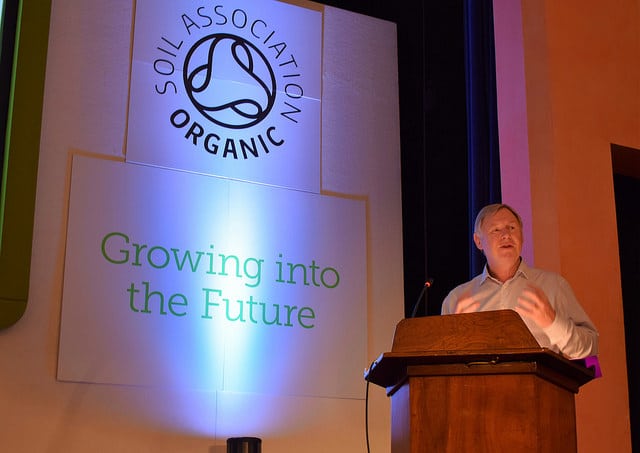The two keynote speakers at this year’s Soil Association trade day each agreed the biggest opportunity for the sector is to link organic and health more clearly in the consumer’s mind.
Nielsen’s Mike Watkins said that health was continuing to rise up the consumer agenda. Latest Nielsen data shows that 63% of shoppers “actively look for healthy options when grocery shopping”, with 34% saying that “longevity and maintaining good health” are the main focus. Reducing sugar remains the number one health priority when making healthy food choices.
Organic consumers are more aware of food intolerance – citing ‘wheat free’, ‘gluten free’, ‘egg free’ and ‘vegetarian and vegan’ as labels they specifically look for on pack. They also view health attributes – for example ‘added vitamins’, ‘no preservatives’, ‘probiotic/prebiotic’ and ‘added protein’ – as providing added value to food and drink products. Watkins said: “Linking health and food is the biggest opportunity the organic sector currently has.”
David Preston from brand agency The Crow Flies said the challenge in harnessing the health opportunity was that “health is so big – the important things is that you dimensionalize it.” He suggests ideas about health might need re-defining. “Functional health is still very important – but a more holistic concept of health is growing. One that’s more about ‘how I run my life, my family’.”
Mind the gap
Preston (pictured opposite) said that the organic sector still had “a job to do joining up the dots”. One of the “blockers” in the way of further organic market growth was the poor understanding consumers had about organic standards, which in turn led to “suspicions and questions”
“Let’s be clear, Millennials is an absolutely useless term. There are 14 million Millennials in the UK. That’s not target audience”
He explained: “We found that people are prepared to pay a premium for organic – but at the moment they felt that the gap was too big. Connecting up the dots helps people justify their decision (to pay a premium).”
Preston said he despaired at the treatment of Millennials as a coveted demographic. “Let’s be clear, it’s an absolutely useless term. There are 14 million Millennials in the UK. That’s not target audience. How can you define people by age? We wanted to look beyond that, at people’s attitudes – as a much better way of breaking the market down.”












